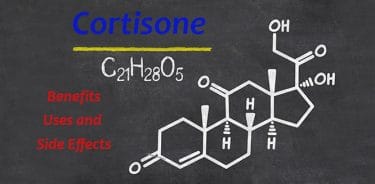Zyrtec (cetirizine) is a medicine used especially for the treatment of allergic reactions affecting the upper respiratory tract. It helps relieve allergic rhinitis symptoms such as runny nose, sneezing, watery eyes and itching. It relieves the redness and swelling of the skin associated with idiopathic chronic hives. It is a fast acting medicine and generally used for a short period of time. Drowsiness, lightheadedness, exhaustion and dry mouth are the most common side effects. Combining it with alcohol or sedatives may increase the side effects. In children, it is necessary to use at the prescribed dose. It should be used in accordance with the instructions of a doctor.
Table of Contents
What is Zyrtec (cetirizine)?
Zyrtec is a prescription medicine used to treat allergic rhinitis (hay fever) and idiopathic chronic hives. Its active ingredient, cetirizine dihydrochloride, is in the group of second-generation antihistamines (allergy reliever). It relieves the symptoms of allergic reaction. There are different forms of the medicine, such as syrup, oral drops, and tablets. It is not recommended for children under 2 years old. (1)
What is Zyrtec used for?
Zyrtec is used to temporarily relieve the symptoms of seasonal or perennial allergic rhinitis (hay fever) and chronic hives that develop against airborne substances such as pollen and dust.
Main symptoms are:
- Runny nose
- Itchy, red, watery eyes
- Itchy nose or throat
- Redness in the skin
- Swelling and itchiness of the skin and
This medicine does not prevent other allergic skin reactions, except for the chronic hives that often occur due to food or drug allergies (2)
How does Zyrtec work?
Histamine is a chemical secreted by the mast cells in response to an allergen. It is responsible for the most of the symptoms of an allergic reaction, such as swelling of the mucous membrane, sneezing and itching. Zyrtec binds with histamine receptors, thereby preventing the effect of this substance on the receptors. This relieves the symptoms of allergic reaction. It takes effect in 20-30 minutes and the effect may last more than 24 hours. (3)
How to use Zyrtec?
- You may take the medicine on an empty or full stomach.
- Try to take it at the same time every day.
- If you think its effect is too weak or too strong, do not use in larger or smaller amounts without informing your doctor.
- Do not take a double dose to make up for the missed dose. Take the missed dose only if there is enough time for the next dose.
- Do not stop treatment without the doctor’s advice. This can cause disease symptoms coming back or getting worse.
- Inform your doctor if rashes do not improve within 3 days or they get worse.
- Use the medicine only for the condition that it is prescribed for. Call your doctor if a bruise or swelling, or a rash without an itch develops.
- You should use Zyrtec as prescribed by your doctor. Follow the instructions exactly during the treatment.
This medicine is prescribed for you only. Do not recommend the medicine to others or do not give it to others for using.
Doses of Zyrtec and dose adjustment
Doses of the medicine in syrup, tablet and oral drops are as follows:
Zyrtec syrup dosage
- Children aged between 2-6 years: half of a spoonful (2.5 ml) twice a day
- Children aged between 6-12 years: one spoonful (5 ml) twice a day
- Adults and adolescents aged 12 years or older: two spoonsful once a day (10 ml)
- Elderly aged 60-65 years or older: If they are with normal kidney function, no special dose adjustment is required and doses for adults can be used.
Do not use any spoon other than the measuring spoon of the syrup to measure for a correct dose.
Zyrtec tablet dosage
The tablet form of Zyrtec is not recommended for children under 6 years old.
- Children aged 6 years and older: The recommended daily dose is 5 mg. (divided into two doses of 2.5 mg + 2.5 mg)
- Adults: The recommended daily dose is 10 mg once a day.
How long should Zyrtec be taken?
The duration of use may vary from person to person depending on the severity and duration of the symptoms. For example, in seasonal allergies, it is usually used for a maximum of 7-10 days. However, in perennial allergic reactions, prolonged use may be required as symptoms become more severe. In the long-term use of the medicine, it is necessary to take a one week break in every 3 weeks.
Zyrtec overdose
In case of an overdose, side effects such as confusion, restlessness, drowsiness, diarrhea, irregular heartbeat, seizures, dyspnea and/or loss of consciousness may occur. In this case, try to throw up (or try to make your child throw up) and apply to an emergency immediately.
What should be considered while using Zyrtec?
- If you require an allergy test, consult your doctor about stopping the medication for a few days before the test. Zyrtec may affect the results of an allergy test.
- Drowsiness, one of the possible side effects of Zyrtec, may impair thinking or reactions. Therefore, driving and using machinery should be avoided without observing the effect of the medicine. Those who take other medicines, such as central nervous system antidepressants or tranquilizers, should especially be careful while using this medicine.
- This medicine contains sodium acetate. Patients on a low sodium diet should consider it.
- This medicine contains sorbitol (artificial sweetener). Those who are allergic to sugars should inform their doctor before taking it.
Zyrtec (cetirizine) drug interactions
The medication has no known interactions with other medications. However;
- Antidepressants
- Anxiety drugs
- Psychiatric drugs
- Medicines used for epileptic seizures
- Medicines for the common cold or other allergies
- Sleeping pills
- Medications containing theophylline, used especially by patients with asthma, may increase the frequency of possible side effects.
Your doctor may need to adjust the dose and carefully monitor you for side effects. (4)
If you use/have used a prescription or non-prescription drug (including herbal supplements and vitamins), be sure to inform your doctor.
Drinking alcohol while taking Zyrtec
Alcohol may increase the possible side effects of Zyrtec, such as drowsiness and dizziness. Therefore, it should be avoided drinking alcohol or any alcohol-containing product while taking Zyrtec. (5)
Zyrtec food interactions
There is no food restriction unless your doctor recommends otherwise.
Forms and types of Zyrtec
- Zyrtec: 10 mg – tablets
- Zyrtec liquid gel: 10 mg – Capsule
- Zyrtec: 10 mg – dissolve tabs
- Zyrtec-D: 5 mg – Extended release tablet
- Children’s Zyrtec: 10 mg – dissolve tabs
- Children’s Zyrtec Syrup: 5mg/5ml
Zyrtec generic drugs which contain cetirizine
- Alleroff: Syrup – 5 mg/5 ml Tablets – 10 mg
- Aller-Tec: Tablet – 10 mg
- Allergy Relief: Tablet – 10 mg
- Cetirizine: Tablet – 10 mg
Who should not use Zyrtec?
- People who are allergic to the active ingredient cetirizine and other excipients in the medicine such as methyl paraben and propyl paraben.
- Patients with severe renal failure
- Children under two years old should not use Zyrtec.
Moreover;
- People with urination problems due to spinal cord, prostate or bladder disorders,
- Epilepsy patients or people with risk of a seizure or convulsion
- People with renal failure should use this medicine with caution by informing their doctor. Dose adjustment is made according to their condition.
Use of Zyrtec during Pregnancy-Breastfeeding
It should not be used during pregnancy or breastfeeding without consulting a doctor. If one realizes that she is pregnant during the course of the treatment, she should inform her doctor. (6)
Side-effects of Zyrtec
Common side effects
- Sleepiness or drowsiness
- Extreme fatigue or exhaustion
- Dizziness
- Headache
- Pharyngitis
- Dry mouth
- Nausea
- Diarrhea
- Vomiting
- Flu (in children)
Rare side effects
- Depression
- Insomnia
- Edema
- Abdominal pain
- Weight gain
- Tachycardia (increased heart rate)
- Difficulty in urinating or not being able to urinate at all
- Urinary incontinence or painful urination
- Tremor
- Tics
- Distorted sense of taste
- Blurred vision
If you experience any of the above side effects and any unexpected effects after you start using the medicine, inform your doctor immediately. If you experience symptoms such as;
- Difficulty in swallowing, speaking or breathing
- Swelling in or around the mouth
- Swelling of the tongue
- Wheezing
- Drooling
- Dizziness
- Loss of consciousness, you should apply to an emergency immediately.
These may be the symptoms of a life-threatening allergic reaction (anaphylaxis).
Zyrtec (cetirizine) prescription
You can access more detailed information about Zyrtec (cetirizine) via this link :>>>




